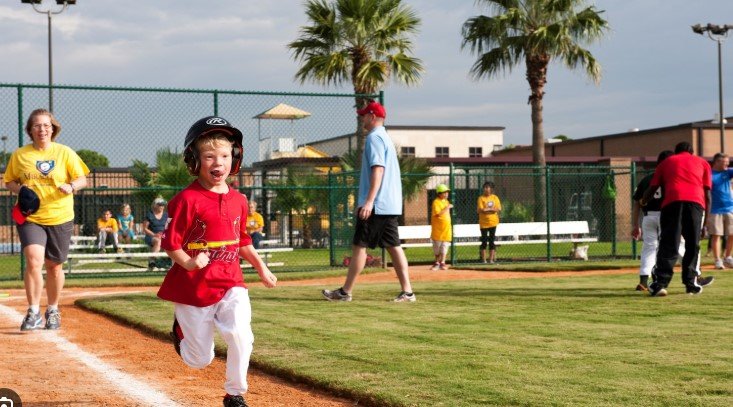Choosing the right sport for your child can be a challenging yet rewarding task. With so many sports available, it’s essential to find one that matches your child’s interests, physical abilities, and personality. Participating in a sport not only promotes physical health but also helps with emotional and social development. In this post, we’ll explore practical tips on how to choose the right sport for your child, ensuring that they enjoy the experience and benefit from it.

Consider Your Child’s Interests and Personality
The first step in choosing the right sport for your child is to consider their interests and personality. Is your child more introverted or extroverted? Do they enjoy team-based activities, or do they prefer individual challenges? Observing your child’s behavior during playtime or recreational activities can provide insight into the type of sport they might enjoy.
For example, if your child loves being part of a group, team sports like soccer, basketball, or volleyball may be a great fit. On the other hand, if they enjoy working independently, individual sports such as swimming, gymnastics, or tennis might be more suitable. Aligning the sport with your child’s personality will increase the chances that they will stay engaged and motivated.
Assess Physical Abilities and Skills
Another important factor to consider when choosing a sport for your child is their physical abilities and skills. Every child develops at their own pace, and some sports may be better suited to your child’s current level of physical development. It’s important to assess their coordination, strength, and stamina to determine which sports align with their natural abilities.
For example, a child with strong coordination and speed may excel in sports like soccer or track, while a child with good balance and flexibility might enjoy gymnastics or dance. Be mindful not to push your child into a sport based solely on their athletic abilities. Instead, focus on finding a sport that offers opportunities for growth and improvement, regardless of their current skill level.
Think About Commitment and Time Availability
Sports vary in terms of commitment, and it’s important to choose one that fits within your family’s schedule and lifestyle. Some sports require a significant time commitment for practices, games, and competitions, while others may be more flexible and less time-intensive. Before choosing a sport, consider how much time you and your child can realistically dedicate to it.
If your family has a busy schedule, you may want to start with a less demanding sport or one that has fewer practices each week. Additionally, be aware that some sports, like competitive swimming or travel soccer, may require more time and financial investment. It’s essential to have open conversations with your child about their interest in committing to a sport before making a final decision.
Explore Different Sports and Programs
If you’re unsure about which sport your child might enjoy, allow them to explore different options. Many communities offer recreational leagues or introductory programs where kids can try out various sports in a low-pressure environment. This gives your child the chance to experience different sports and decide which ones they like best before committing to one.
Look for programs that focus on fun, skill-building, and positive reinforcement. At a young age, it’s crucial to let children explore different sports to discover what excites them. Encouraging your child to try multiple sports during their early years can help them develop a variety of motor skills and a well-rounded appreciation for physical activity.
Consider the Social Environment and Team Dynamics
When selecting a sport, consider the social aspect and the environment in which your child will participate. Some children thrive in competitive settings, while others prefer a more relaxed atmosphere. It’s essential to choose a sport that will provide the right balance of fun, challenge, and social interaction for your child.
Team sports, for example, can teach valuable life skills such as teamwork, communication, and leadership, while also offering opportunities for socialization. On the other hand, individual sports may allow for more personal growth and self-discipline. Ensure that the team or program your child is joining has a positive and supportive environment, where the focus is on learning and having fun, rather than just winning.
Conclusion
Choosing the right sport for your child involves understanding their interests, physical abilities, and personal preferences. By considering these factors, you can help your child find a sport that they enjoy and can thrive in. Whether it’s a team sport or an individual activity, the most important thing is to ensure that the experience is fun, fulfilling, and helps foster a love for physical activity. Encourage your child to explore different options, and remember that the right sport is one that supports their growth and well-being.





